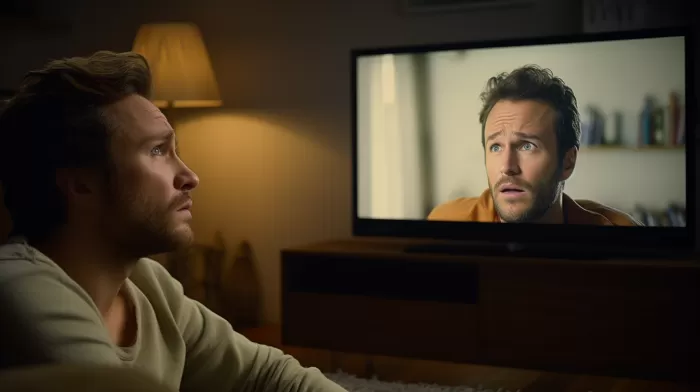Picture this: you’re sitting on your couch, flipping through channels when suddenly an ad pops up. The ad, with its soothing music and reassuring spokesperson, presents a new miracle drug to treat a variety of symptoms. Intrigued, you make a mental note to ask your doctor about it on your next visit. Sound familiar? While this scene may seem harmless, it could be putting your health at risk.
The Power of TV Ads in Consumer Decisions
The reason behind the constant pharmaceutical advertising on television is clear: it sells. Pharmaceutical companies wouldn’t be investing millions if they didn’t know they could get a substantial return. And the results speak for themselves – a study led by John B. McKinlay, Ph.D. at the New England Research Institutes concluded that “a patient request for a specific medication dramatically increases the rate at which physicians prescribe that medication.”
Overcoming the Subconscious Pressure
This strong correlation between patient requests and physician prescriptions may not always be in the best interest of your health. When you ask for a specific drug following a persuasive TV ad, your doctor might assume you’ve done your research and have a legitimate need for the medication – even if it’s not the best choice for your situation. This may lead the doctor to prescribe a medication that ends up doing more harm than benefit due to unforeseen side effects.
In addition, the power of persuasion is a two-way street. Doctors, too, can be influenced by pharmaceutical companies offering various benefits for prescribing their products. This situation further contributes to patients receiving medications they might not actually need.
The Impact on Treatment Patterns
The influence of TV ads doesn’t stop at the doctor’s prescription pad. Patients who actively request specific medications from their doctors end up with different treatment patterns than those who don’t. McKinlay’s study found that people requesting strong narcotics like oxycodone were more likely to actually receive them, while those asking for a drug like Celebrex were less likely to be prescribed a generic, non-selective non-steroidal anti-inflammatory drug (NSAID). This points to the fact that the power of advertising might be working against you when it comes to receiving the appropriate treatment for your needs.
Questioning the Essence of Direct-to-Consumer Advertising
Some critics argue that direct-to-consumer (DTC) advertising shouldn’t even be allowed. They claim that ads for prescription drugs misinform the public, creating unnecessary demand for medications that might not be the right fit. In today’s fast-paced society, many people are too quick to look for a pharmaceutical solution to their problems rather than focusing on lifestyle changes or considering alternative, non-drug treatments.
On the other hand, proponents of DTC advertising argue that it has its merits. For one, it can help raise awareness about diseases and conditions that people might not have been aware of otherwise. Additionally, these ads often encourage patients to seek help from their healthcare providers, who can then make informed decisions about their care.
Tips to Protect Yourself from Unnecessary Medications
Here are some tips to ensure that you don’t fall victim to the persuasive power of TV ads and end up with unnecessary, potentially harmful medications:
- Do your research – Before requesting a specific medication, spend some time researching it. Look for unbiased information about its uses, side effects, and potential alternatives. Also, be wary of information provided by pharmaceutical companies – they’re primarily focused on selling their product, so you may not get the whole truth.
-
Have an open conversation with your doctor – Talk to your doctor about your symptoms and be open to their recommendations. You can certainly mention the medication that caught your attention, but it’s important to let your healthcare provider make the final decision based on their expertise.
-
Ask about alternatives – Always ask your doctor if there are other treatment options available, such as lifestyle changes, therapy, or alternative medications with fewer side effects.
-
Get a second opinion – If you’re unsure about your doctor’s recommendations or feel they may be influenced by pharmaceutical companies, don’t hesitate to get a second opinion from another healthcare provider.
-
Be mindful of your consumption – Pay attention to your habits when it comes to watching TV or consuming media. The more aware you are of the influences around you, the less likely you are to be swayed by persuasive advertising.
In conclusion, while TV ads for pharmaceuticals can serve a purpose in raising awareness about certain conditions and treatments, it’s essential to remain vigilant in the face of persuasive advertising. Do your own research, communicate openly with your healthcare providers, and always be open to non-pharmaceutical treatment options. By taking these precautions, you can ensure that you receive the best possible care for your unique needs and avoid falling victim to unnecessary, potentially harmful medications.



